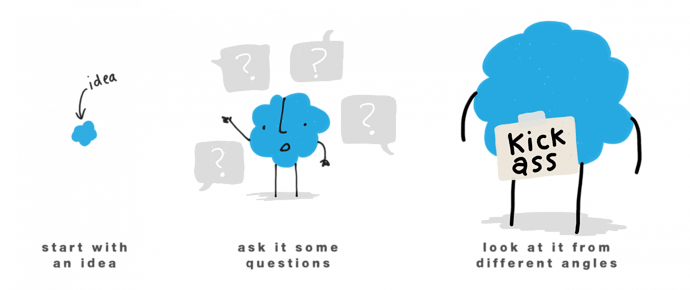Summary
This topic is for brainstorming requirements that IdeationHub might have.
This first post is a placeholder that will contain a summary of the thread.
Note: When responding start your comment with a H2 heading naming the requirement.
Brainstormed requirements:
- Visionary Ideation: Often ideas do not stand on themself, but are related to a larger whole. Visionary Ideation ties these ideas together, and helps people to collectively establish a “completeness of vision” over time.
Ideas:
- Spark Files: Keep track of hunches, and regularly read them back. Spaced repitition Flash Cards. Develop over long periods of time.
